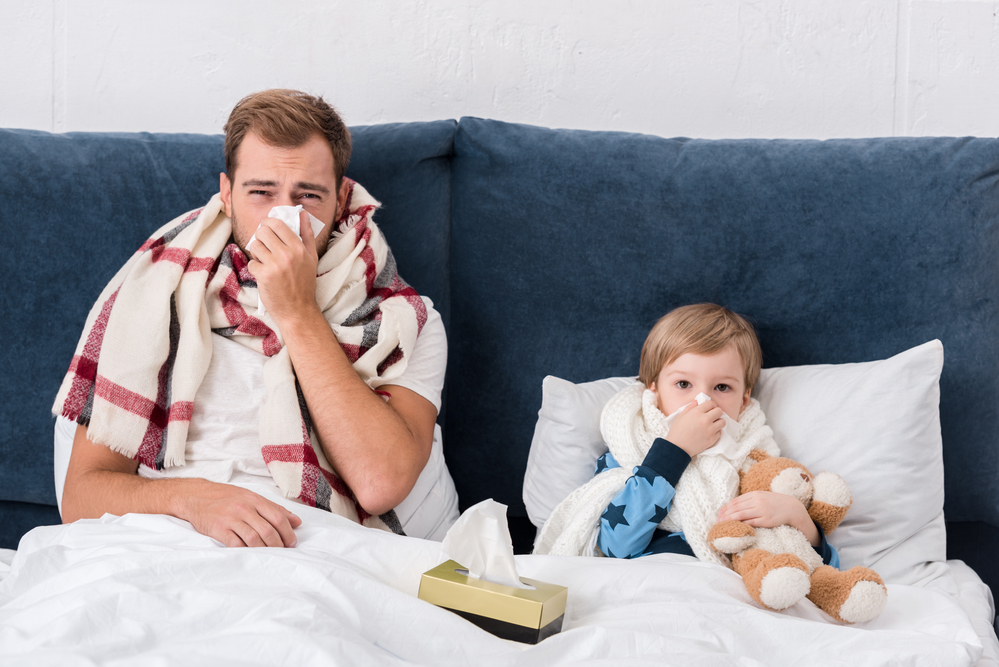
Influenza season is once again upon us, and it can sometimes feel as if everyone around you is getting sick. Those who follow basic hygiene habits, including washing your hands, avoiding contact with your face, and getting the flu shot, can make a significant difference in avoiding getting sick.
If you are unlucky enough to get hit with the flu, what does it mean for your oral health? Here’s why you should always replace your toothbrush after contracting a virus.
Your Toothbrush Should Be Swapped Out Regularly
One of the most essential practices of your oral hygiene routine should be replacing your toothbrush regularly. Having the right toothbrush ensures you are achieving a proper clean, and a toothbrush that is old and damaged will not clean as well as a new one. Most dentists recommend replacing your toothbrush once the bristles begin to fray and look worn. Once this occurs, the bristles are unable to get into the little nooks and crannies of your teeth. Set a calendar reminder to replace toothbrushes for everyone in your family every three months, so you don’t forget!
Keeping Your Toothbrush as Germ-Free as Possible
It’s always a good idea to discard a toothbrush after you have had the flu since it can harbor so many germs. Many people prepare for cold and flu season by grabbing an extra toothbrush or two to keep on hand. When you start to feel sick and notice flu-like symptoms coming on, you can switch to your backup toothbrush and use that one during the duration of your illness.
If you don’t have a backup toothbrush on hand, remember to throw out whatever toothbrush you end up using while you are sick.
Keep your toothbrush as germ-free as possible by:
- Never using anyone else’s toothbrush, or letting someone use yours
- After brushing, rinse your toothbrush with tap water
- Don’t soak your toothbrush in disinfecting solutions or mouthwash. This can actually lead to the spread of germs
- Store your toothbrush upright in a holder to air dry
- Avoid covering your toothbrush or storing it in a closed container. Moist environments are a breeding ground for bacteria
- Replace your toothbrush every three to four months, or sooner if the bristles start to look frayed
Oral Health Risks While You’re Sick
Having excellent oral hygiene habits is essential every day, but it is especially critical when you’re sick. When we are feeling under the weather, it’s easy to let your self-care fall short. Not brushing your hair, or avoiding taking a shower is normal; however, don’t skip things like brushing your teeth and using a mouthwash.
The bacteria in your mouth kicks into overdrive when you are sick, so it’s more critical than ever to stay on top of your dental care. Many dentists actually recommend brushing and using mouthwash more often than you usually would while you are combating the flu or another major illness. Not only will this help to kill the germs, so you don’t spread the flu as easily, but it can also help to shorten the duration of your own illness by preventing re-infection from occurring.
Protecting Yourself (and Your Toothbrush!) From Lingering Germs
To keep your toothbrush (and yourself!) healthy, make sure to let your toothbrush dry out between uses. Toothbrushes can be breeding grounds for germs, fungus, and bacteria. Help to protect those around you by staying home if you aren’t feeling well to avoid the spread of germs. If you are feeling sick but have an upcoming appointment for a dental exam or procedure, contact Hinsdale Dentistry to re-schedule your appointment. Your overall health is our top priority!